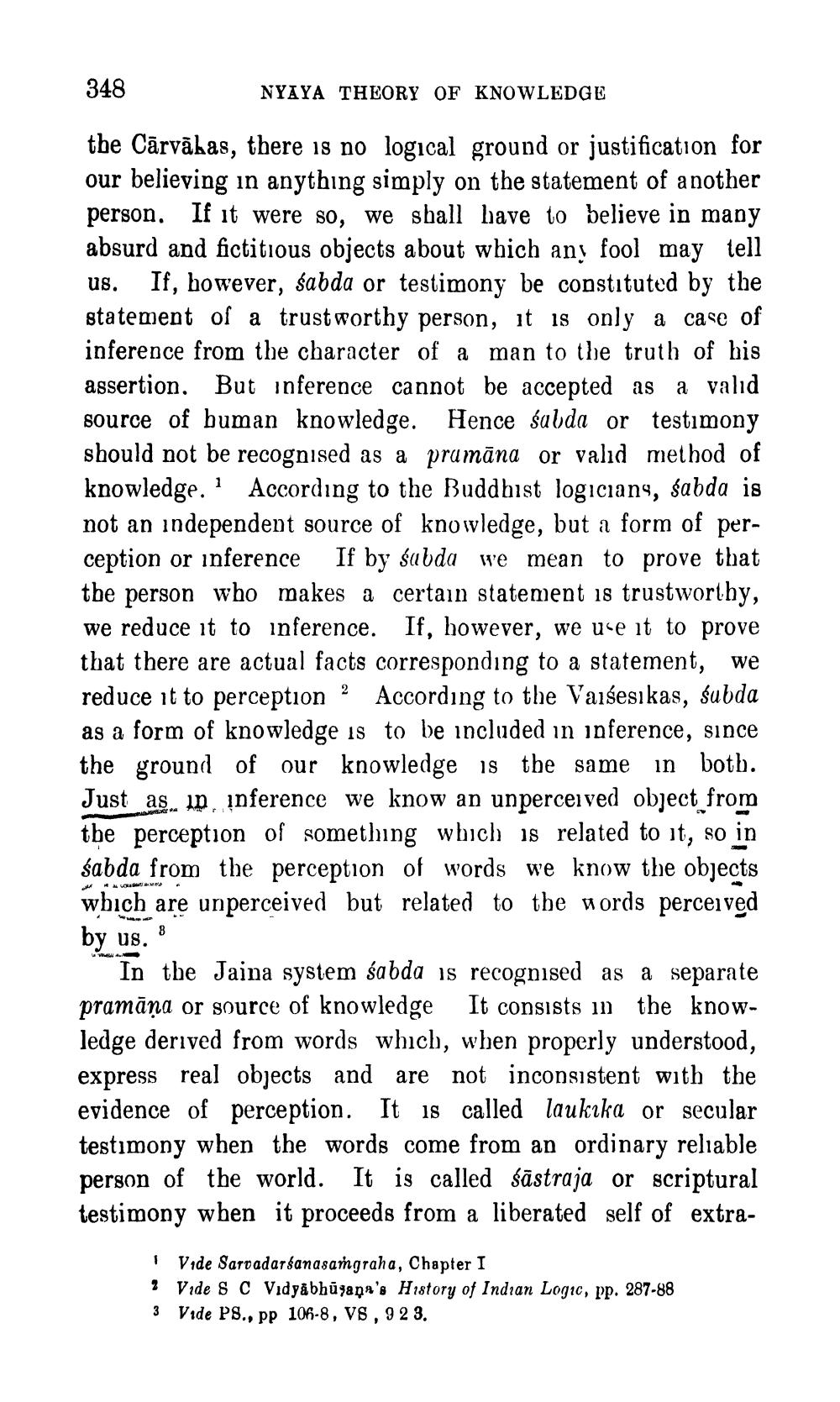________________
348
NYAYA THEORY OF KNOWLEDGE
the Cārvākas, there is no logical ground or justification for our believing in anything simply on the statement of another person. If it were so, we shall have to believe in many absurd and fictitious objects about which any fool may tell us. If, however, śabda or testimony be constituted by the statement of a trustworthy person, it is only a case of inference from the character of a man to the truth of bis assertion. But inference cannot be accepted as a valid source of buman knowledge. Hence śubda or testimony should not be recognised as a prumāna or valid method of knowledge. According to the Buddhist logiciany, sabda is not an independent source of knowledge, but a form of perception or inference If by śubda we mean to prove that the person who makes a certain statement is trustworthy, we reduce it to inference. If, however, we use it to prove that there are actual facts corresponding to a statement, we reduce it to perception ? According to the Vaišesikas, subda as a form of knowledge is to be included in inference, since the ground of our knowledge is the same in both. Just as up, înference we know an unperceived object from the perception of something which is related to it, so in sabda from the perception of words we know the objects which are unperceived but related to the words perceived by us. 8
In the Jaina system śabda is recognised as a separate pramāņa or source of knowledge It consists in the knowledge derived from words which, when properly understood, express real objects and are not inconsistent with the evidence of perception. It is called laukika or secular testimony when the words come from an ordinary reliable person of the world. It is called śāstraja or scriptural testimony when it proceeds from a liberated self of extra
1 Vide Sarvadarsanasangraha, Chapter I 3 Vide SC Vidyabhūyana's History of Indian Logic, pp. 287-88 3 Vide Ps., pp 106-8, V8, 92 3.




